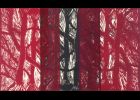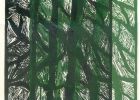Mídia, gestos e sociedade. Diálogos entre Vilém Flusser
The present article proposes a dialogue between Vilém Flusser’s media theory, especially focusing upon his books Filosofia da Caixa Preta (1983) and Les Gestes (1999), and the artistic projects developed by the French multimedia artist Fred Forest. Each in his own way acted towards the creation of a critical and reflective spirit about the world seen as a “black box.”
De Flusser a Benjamin – do pós-aurático às imagens técnicas
This text presents some elective affinities and differences between the works of two powerful media theoreticians of the 20th century: Water Benjamin and Vilém Flusser. Both authors have shaped original perspectives on the relationship between art and technology. While holding a special place for the theory of photography, both have reflected upon the history of writing and its transformations during Modernity. In addition, both Benjamin and Flusser dedicated important texts to the question of translation and the philosophy of language. This text also examines the differences between the Benjaminian theory of writing and image reproduction connected to his concept of post-auratic images, and, on the other hand, the Flusserian theory of technical and post-historical images.
Die Welt im Netz
This text is taken from Karen Joisten's monograph entitled Philosophie der Heimat - Heimat der Philosophie (Berlin: Akademie Verlag, 2003), more specifically from chapter 6, "Die Welt im Netz," 273-316. Flusser Studies is re-printing sections 6.3, 6.5, and 6.6 and publishing for the first time section 6.1. in English ("Vilém Flussers Trans-Anthropozentrismus und die Wende 'Vom Subjekt zum Projekt'"). The author's focus lies primarily on Flusser's late works in that she analyzes his vision of a "new human being" in a post-industrial age who is no longer bound by the limits of history and ready to enter into a creative autonomy.
Vernetzung der Welt
My first connection with Flusser was in the place of his birth – Prague. Later in Prague and Zurich I read in magazines many articles by him. The text “Towards a Philosophy of Photography” was very important for me. Vilém Flusser finds in photography a possibility to realize a space of freedom. In that sense, Photography is a starting point for every philosophy. In the text “Kommunikologie weiter denken” Flusser stated: “The space is not only twisted. The space comes to me and I come to him [it]. Time is twisted too. Past becomes future and future becomes past and both are contemporary.” This is the point of view of the graphic Vernetzung der Welt.
Flusser a metafyzika / Flusser und Metaphysik
Although Flusser proposes to examine human communication from a dispassionate, non-ideological point of view, his analysis is based on metaphysics. In his description of dialogical communication structures we can detect, in fact, a double recourse on metaphysics. On the one hand there are circular dialogues which, according to Flusser, originate in the Greek agora, on the other are certain net dialogues which originate from Jewish philosophy. The first case, a fundamentally Platonic type, is based on an ascending metaphysics, a movement from concrete reality into the realm of truth. In the second case, one is not looking for ideas or abstract principles but moving downwards toward concrete reality in order to find an embodiment for these ideas or principles. These structures allow us to reconsider not only metaphysics itself but also our notions of concrete reality.
Filosofie médiía změna paradigmat / Medienphilosophie und Paradigmenwechsel
In the context of contemporary media-philosophy discussions, the article is focusing on a theory of mediation we can find in Flussers texts. With his concept of a “change of paradigms” Flusser describes the dilemmas of the theoretical reflections regarding contemporary media culture: the evolution of media (or cultural techniques) and these media’s theories question basic metaphysical concepts - objectivity, reality, the material and their symbols, things, rationality etc. Today the focus is on mediation, the forms of knowledge, perception and communication. With his theories of a hierarchy of codes, writing and image, and society as a network, Flusser suggests theoretical models that could help to provide answers to questions of today’s cultural, communication, social and technical processes, and to their interaction.
Technický obraz a logická stavba (Bau): Flusser a Wittgenstein / Das technische Bild und der logische Bau: Flusser und Wittgenstein
Both Wittgenstein and Flusser tried to find an answer to the question: how are media possible? Although Wittgenstein does not ask this question explicitly it can be detected in his Tractatus. Because of this fundamental similarity between both thinkers, it is possible to read Wittgenstein's theory of logical form from the point of view of Flusser's concept of techno-image and to interpret Flusser's notion of medium from the point of view articulated in Wittgenstein's Tractatus. At the same time, it is necessary to focus on their differences. Wittgenstein deals with the problem of the form of a significant world, while Flusser
focuses on the problem of specific artifacts, that is, technical images. For Wittgenstein a medium is generally one object placed among other objects. Flusser, on the other hand, is interested in a specific medium situated among other artifacts.
A insustentável leveza de pensar: Jogos, joguinhos e jogaços de Vilém Flusser
This article seeks to disclose the strategies used by Vilém Flusser for writing his texts while living in Brazil. After presenting the basic elements of his Brazilian „performance“, we turn our attention to the controversies around him – why was he rejected by many contemporary scholars, why was he subjected to severely ironic criticism by professional critics and – at the same time – aroused great interest among a vast number of readers? Starting from the analysis of his book “Language and reality“ and from three essays, we try to show that the philosopher developed the practice of playing a particular kind of game as a clear and sophisticated strategy to get across an emotional and eloquent meaning through his work. In the last pages of his book “Brazilian Phenomenology," written shortly after leaving Brazil for good, he introduces the behavioral characteristics of a new man, the “homo ludens" whose involvement with society displays structure of a game: neither to win, nor to avoid defeat, but to play with the purpose of changing the rules of the game. Studying the works of Vilém Flusser, we reach the conclusion that he himself used this third type of action, crossing through the traditional discourse of western science, causing the indignation of professors, irritating journalists and fascinating readers.
Cartas Flusserianas: diagnóstico sobre correspondência com Sérgio Paulo Rouanet
The purpose of this essay is to comment on the reading of a set of letters exchanged by Vilém Flusser (1920 - 1991) and Sérgio Paulo Rouanet (1934). The exchang e comprising 56 letters altogether – 30 by Flusser himself – took place between 1980 and 1991. It focuse d on some of Flusser’s most important concepts: the relationship of discourse and dialogue, the idea of ‘Apparat’, the existential dimension of writing, as well as the meaning of death and entropy for a theory of communication. Rouanet’s pertinent criticism reveals also some unexpected sides of Flusser’s theoretical assumptions.
Pages
- « first
- ‹ previous
- 1
- 2
- 3

